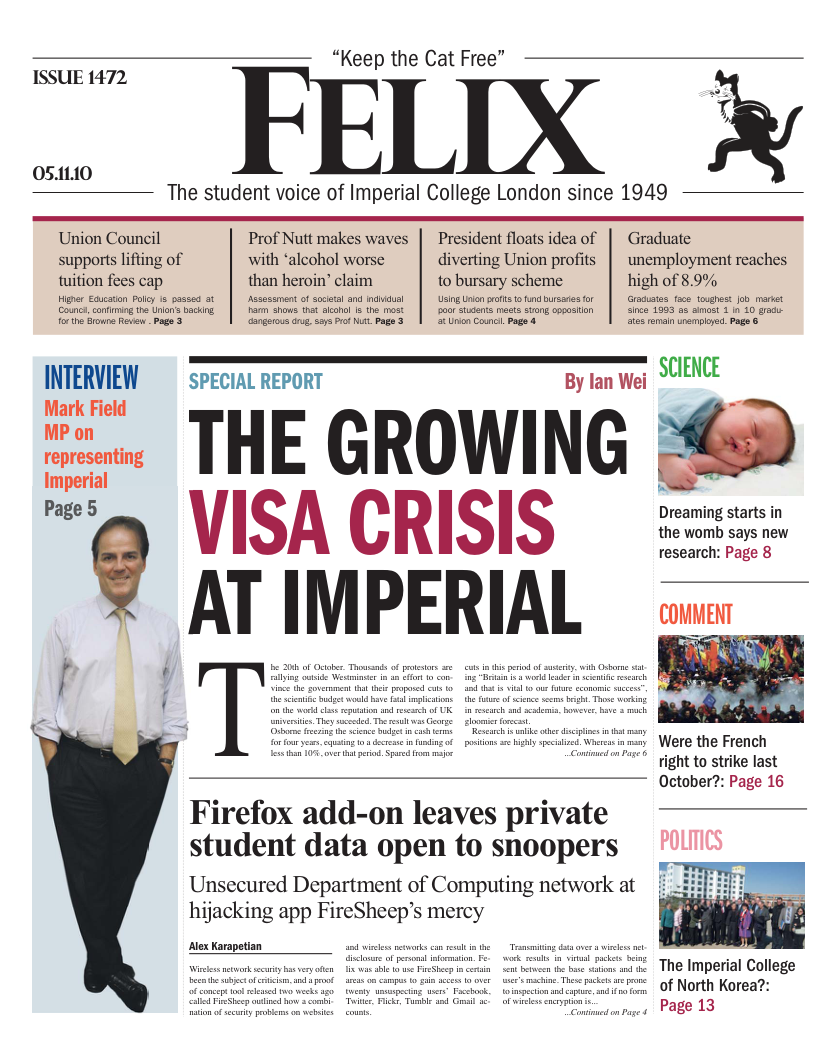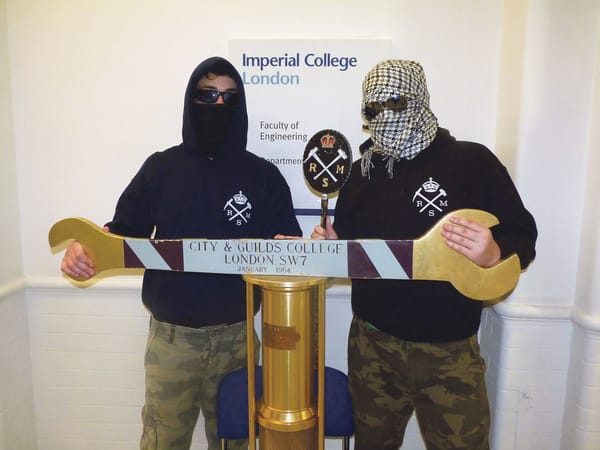Grim employment prospects as recession hits graduates
Graduate unemployment at 8.9%
Graduate unemployment has risen to 8.9%, a rise of one percentage point from the previous year. This is the conclusion of a survey by the Higher Education Careers Services Unit (HECSU) of 225,000 graduates questioned in January this year, after leaving university in the summer of 2008.
Employment prospects have not looked so grim since 1993, when the UK was coming out of a recession and graduate unemployment peaked at 11.6%.
"These latest figures show that students are graduating from university into the bleakest employment market for decades", said Aaron Porter, President of the National Union of Students.
Whilst the number of Imperial graduates unemployed does not hit national averages, the university is not immune either. Imperial's graduate unemployment has risen sharply from 5% to 7.6% over the past year, closing the gap between Imperial and the national average. Imperial graduates entering employment within six months was down from 69.9% to 60.2%, although this can be partly accounted for by more students entering into further study.
The survey also revealed that the proportion of graduates working in non-graduate sectors such as retail and catering rose to about one in seven.
Striking differences between different degree subjects are also highlighted. IT graduates fared worst, with a staggering 16.3% still seeking work after six months. Also in the top five for the highest unemployment were media studies, design, accountancy and electrical and electronic engineering. Only 6.2% of law graduates were out of work after this period.
However, graduate unemployment is still some way off the levels seen in the last recession. Charlie Ball, Deputy Director of Research from HECSU, believes that "prospects for graduates in the short-term look bright and next year we expect to see a decline."
Ball also stresses that young people thinking about university should not be deterred by the latest figures. Average starting salaries are still substantially higher for graduates (£19,695) than for non-graduates (£15,912).
The study is compiled from a national survey carried out by all UK university careers services each year and then collected together and analysed by HECSU. However, the reliability of the results has been questioned by Imperial's own careers service.
Each graduate is asked about their activity on one specific date in the January following the end of their course. "If he or she is starting a job the following week, they would still be classed as unemployed for the purposes of the survey", said Elspeth Farrar, Director of Imperial College Careers Advisory Service.
Alex Dahinten, Deputy President (Education) of Imperial College Union, emphasised the benefits of participating or taking an active role in the union's clubs and societies to improve their employment prospects: "You have the opportunity to learn a number of vital soft skills which are not taught in lecture theatres, while having fun and getting to meet like-minded people. Graduates should not underestimate the ability to give a presentation, work in a group or chair a meeting."
The deputy president believes that companies will continue to fight over employing Imperial graduates.
We come from a world-class university and due to the subject choice and academic responsibilities that we carry during our time here, we will always be "in-demand" graduates.





